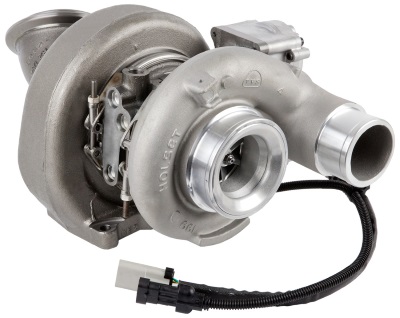In the middle of the 2007 model year, Dodge replaced the venerable Cummins 5.9 24v diesel engine with a new 6.7-liter model to keep up with increasing competition from Ford and GM. In addition to a massive power boost, it also prompted the Ram to push for emissions standards that weren’t set to take effect until 2010, three years after they were launched. With minor updates, this engine is still in production on heavy duty Ram trucks today.
Initial reviews of the 6.7 were excellent and everyone praised the new potential of a proven engine platform. During the first year of the trucks’ release, every diesel truck forum on the Internet had some variation of the “08 Dodge Ram 3500 6.7 Cummings Problems” thread, with upset owners sharing stories of costly repairs on trucks that were still new. moment. The first sign was a check engine light, which is often caused by the P2262 diagnostic code for a clogged turbo.
The 6.7 has a variable geometry turbo. Developed in the 1980s, but first used extensively by Porsche for the 911 Turbo with the 997 chassis, it is a turbo with movable fins within the compressor housing, allowing it to open until it is wide enough Restricts pressure. . This is the effect of a smaller turbo at low RPMs for better off-line response, but once enough boost is built that opens up a larger area inside the turbo so you can get the greatest horsepower numbers at higher RPMs. It is derived from the larger turbo. Using sequential turbochargers from other manufacturers, including Ford, with their Power stroke diesels had similar results, with a smaller turbo fueling a larger one. The advantage of a variable geometry turbo is greater efficiency in a smaller package.
To meet increasingly stringent emissions standards, Ram Cummins used an exhaust gas recirculation (EGR) system, in which part of the exhaust is returned to the intake. This way, the exhaust gases can go back through the engine to burn off any contaminants in the initial exhaust cycle. A diesel engine naturally generates more emissions than a gasoline one, as the fuel is less refined and ignition is controlled by compression, not spark, which makes it more difficult to control. Since the 6.7 is derived from the 5.9 above, which in turn was derived from the Cummins 6BT diesel, advanced measures such as EGR were required for the engine to meet emissions compliance.
However, the downside of an EGR is that the air entering the turbo through the intake tract is much dirtier than in vehicles without it, as it is a combination of atmospheric air and diesel exhaust. Contaminants from the EGR clog the variable geometry turbo blades, limiting their ability to open and close to produce the required boost level. This will cause the truck to power down and trigger the P2262 Diagnostic Trouble Code above. You can remove and clean the turbo as a temporary solution, but it won’t fix the problem in the long run. By the time the smooth is compromised and a check engine light comes on, the damage is done.
After a few years and thousands of warranty claims, Dodge finally made some updates to Cummins which significantly reduced the incidence of this problem and they were able to roll back to the older models. Replacement turbos will almost always be of the upgraded variety for better long-term reliability, and they work as direct bolt-ons for all Ram models from late 2007–2012 with the 6.7. This means that if you have to replace the turbo in your Ram, you will only have to do it once in the normal life of the truck.
While these issues may reflect some of the complaints raised by owners of Ford trucks with 6.0 Power stroke engines (EGR and other emissions equipment that affect reliability), the 6.7 Cummings is highly regarded by diesel enthusiasts. If you need to replace the turbo on your Dodge diesel truck, as long as you select a quality part from a reputable supplier, you will be ready for another hundreds of thousands of miles with a great, reliable truck. Contact us for exclusive help getting direct-fit replacement turbos from well-known brands like Holsett, Borg Warner, Stigan, Garrett and more.

